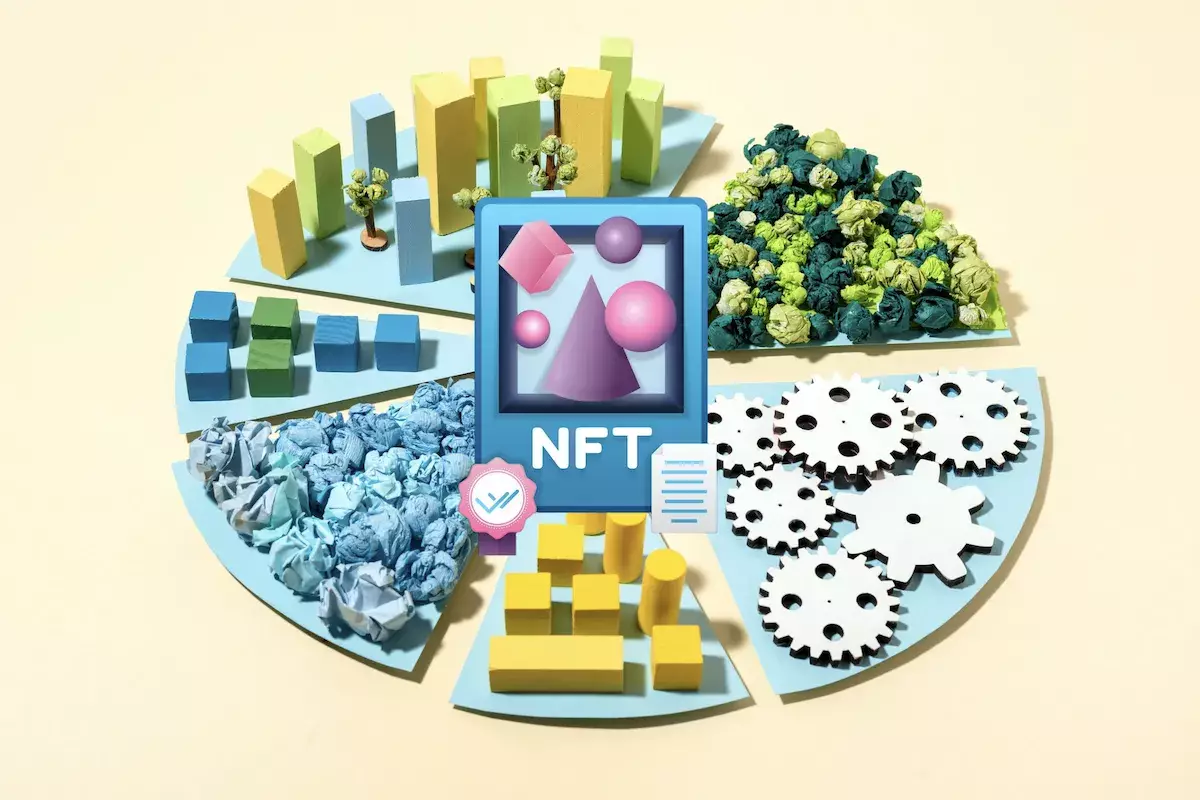As Europe embarks on an ambitious journey to become a pioneer in sustainability, initiatives like the European Green Deal are taking center stage. This comprehensive strategy aims to slash carbon emissions, reduce pollution, and transition the economy toward sustainable resources. Key to this transformation is a combination of eco-friendly product designs, improved resource management, and innovative recycling practices. Among these initiatives, the concept of Digital Product Passports (DPPs) emerges as a groundbreaking tool to enhance transparency and empower consumers. This article examines the function of DPPs and explores how Non-Fungible Tokens (NFTs) can facilitate a new level of trust and accountability in sustainability endeavors.
Digital Product Passports serve as a digital record or ‘passport’ that encapsulates the journey of a product from raw material extraction to its eventual disposal or recycling. Each passport documents critical data, such as the product’s materials, production methods, environmental impact, and repair history. This system aligns with the Ecodesign for Sustainable Products Regulation (ESPR) and the Circular Economy Action Plan (CEAP), prioritizing product designs that minimize waste and facilitate the reuse, recycling, or repurposing of goods.
DPPs not only provide a detailed account of a product’s lifecycle but also promote transparency by revealing vital sustainability metrics like carbon footprints and the use of recycled materials. They help consumers make informed decisions, allowing them to choose products that are kinder to the planet. Furthermore, DPPs aid manufacturers in adhering to evolving European regulations regarding emissions and resource management.
While NFTs are often celebrated for their role in digital art and collectibles, their potential applications extend far beyond these realms. NFTs serve as unique digital certificates stored on a blockchain, which records data in a manner that is immutable and transparent. When linked to DPPs, NFTs can function as digital twins of physical products, maintaining an enduring and secure record of every transaction and modification.
One of the standout advantages of integrating NFTs into DPPs lies in their ability to trace a product’s origins through the supply chain — from extraction to manufacturing and ultimately to recycling. This capability fosters trust and credibility as stakeholders can independently verify the claims associated with each product. The decentralized nature of blockchain technology, where no single entity controls the data, enhances transparency, thus thwarting potential fraud.
In an age where product ownership frequently shifts—whether through sales, giveaways, or reselling—the use of NFTs in DPPs can effectively document the transfer of ownership in real-time. An NFT-based DPP can maintain a transaction history, contributing to more reliable second-hand markets. For consumers, this means access to verified product histories and authenticity, paving the way for increased buyer confidence.
Despite the numerous benefits of NFT integration, certain challenges must be navigated, particularly surrounding data privacy and compliance with regulations like the General Data Protection Regulation (GDPR). Not all data can be openly shared on a public blockchain, prompting some NFT designs to employ techniques such as zero-knowledge proofs, allowing sensitive information to remain confidential while still maintaining necessary transparency.
Several pioneering projects are developing blockchain-based solutions to transform supply chains. Companies like Circularise and nChain are at the forefront, employing NFTs and decentralized identifiers to enhance DPP functionality. Innovations like these not only demonstrate the versatility of NFTs but also underline their growing relevance in various industries by providing comprehensive material accountability.
As Europe imposes stricter environmental regulations, manufacturers will have to adapt their practices to comply. The need for clear visibility and verification of product sourcing and recycling processes is becoming increasingly critical in this regulatory landscape. Companies willing to adopt NFT-linked DPPs today may find themselves at a competitive advantage, positioned as leaders in sustainability.
While the future of product transparency and sustainability looks promising, potential obstacles remain. The variety of blockchain systems in use may lead to fragmentation, making data interoperability a challenge. Additionally, while NFTs excel in tracking individual items, they can be less effective in representing large batches of identical products, which necessitates careful planning and strategy.
Moreover, skepticism surrounding NFTs, fueled by associations with speculative digital art markets, necessitates robust education for stakeholders. Manufacturers, consumers, and regulators must grasp the transformative power of NFTs in solving real-world challenges as they relate to sustainability.
As digital innovations continue to evolve, the possibilities for the functionality of DPPs also expand. Ideas such as integrating IoT sensors and AI algorithms to provide real-time product data and insights may revolutionize how products are monitored throughout their entire lifecycle, strengthening the connection between sustainability and technology.
Digital Product Passports, enhanced by the integration of NFTs, represent a significant step forward in Europe’s sustainability strategy. By promoting transparency and providing verified product histories, these innovative tools empower consumers to make informed decisions while enabling manufacturers to adhere to stringent regulations. The journey toward a more sustainable Europe is complex, but with the right tools and technologies, it holds the promise of a more eco-conscious future.
















Leave a Reply